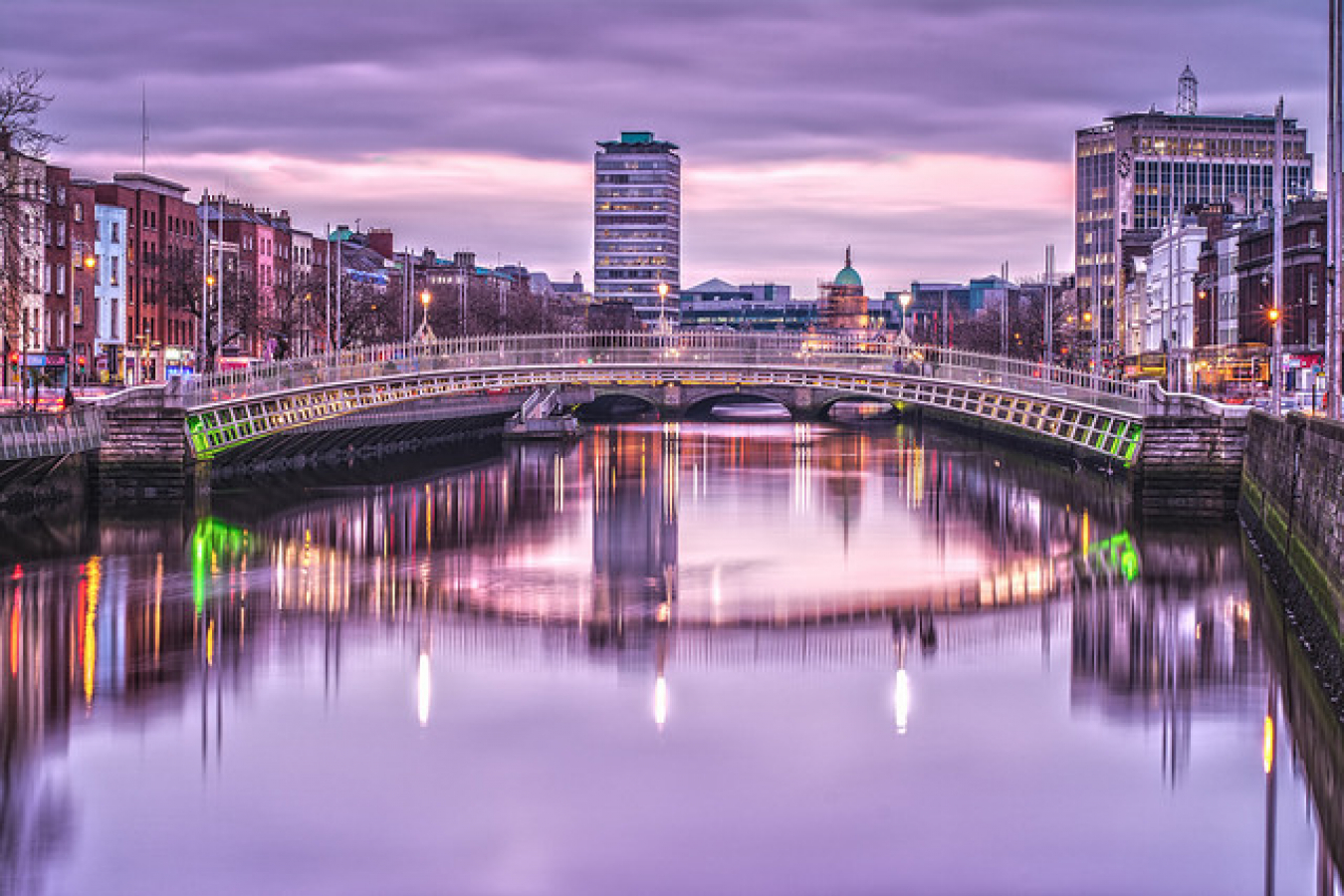UK immigration minister, James Brokenshire, has revealed that London and Dublin will exchange data to prevent migrants using the Irish border as a backdoor route into Britain. In a bid to prevent the introduction of what officials are calling a ‘hard border’ between northern and southern Ireland, there will be additional UK immigration controls at Irish ports and airports once the UK exits the European Union.
In a recent interview with The Guardian newspaper, Brokenshire indicated that there was now ‘a high level of collaboration on a joint programme of work’ between the UK and Ireland to control immigration.
He said: “We have put in place a range of measures to further combat illegal migration working closely with the Irish government. Our focus is to strengthen the external border of the common travel area [CTA], building on the strong collaboration with our Irish partners.”
The CTA agreement enables citizens of Ireland and Britain complete freedom of movement between the two islands.
Increased Immigration Border controls between Northern Ireland and the Republic of Ireland
Following Britain’s decision to leave the EU in June, concerns arose over the issue of controlling immigration and the measures likely to be imposed on the 300-mile border between the Irish Republic and Northern Ireland.
According to some officials, the introduction of tough border controls would likely be viewed as a violation of the Good Friday agreement, which could anger some in a region that has in the past seen a great deal of sectarian violence.
Brokenshire said: “We are already working closely with the Irish government and other members of the common travel area to prevent people from seeking to evade UK immigration controls by entering via another part of the CTA. There is a high level of collaboration on a joint programme of work.
This includes investment in border procedures; increased data sharing to inform immigration and border security decisions; passenger data systems enabling the collection and processing of advance passenger information; and harmonised visa processes.”
Measures to target non-European National Migrants
It’s understood that the new measures will mainly target non-EU nationals looking to enter the Common Travel Area (CTA). Politicians on both sides of the Irish border have expressed fears that towns along the border, such as Dundalk, could become the ‘new Calais’, should people-traffickers attempt to send migrants into the UK using the Irish Republic as a checkpoint before entering Northern Ireland.
Indian and Chinese visitors now apply for a single visa that gives them access to both Ireland and the UK. Similar visa procedures may be introduced for certain other Countries as well.
According to The Guardian, ‘it’s unlikely that Anglo-Irish border measures will stem the flow of EU nationals, after all they will retain the right to free movement to live and work in the Irish Republic.’ However, this point is seen as moot because officials believe few EU citizens will want to come and work illegally in the UK after Brexit.”
One diplomatic source close to Brexit discussions said: “The numbers would be very small.”
Fine Gael confirms discussions with UK Government
The Fine Gael-led coalition government in Dublin confirmed that talks with London were ongoing in an effort to exchange relevant intelligence that would help to restrict immigration for people seeking to enter Britain or Ireland.
Charles Flanagan, Ireland’s foreign minister, said he was in favour of Brokenshire’s plans to create an ‘invisible north-south border.’ Mr Flanagan agreed that an intelligence led-approach was crucial to curbing illegal immigration across the Irish border.
Flanagan said: “In terms of the threat of illegal immigration through the border, the sharing of information is vital, as is the sharing of systems and the use of digital technology. These are means by which we can ensure that any adverse impact is minimised. The object of our engagement is to maintain the common travel area.”
At the same time Flanagan emphasised that upgrading immigration controls between the UK and Ireland would, from Dublin’s point of view, have to be done in negotiation with Ireland’s EU partners.
He said: “I caution that this will be a decision not just by the UK or Irish governments, but ultimately also by the 27 EU states. I have been impressing on my fellow 26 EU foreign ministerial colleagues the importance of maintaining what is now an invisible border. I have to say there was among them a deep understanding of the consequences for the peace process of the re-imposition of a heavily fortified border.”
No effect on the Good Friday Agreement
Brokenshire stated that Brexit would not cause disruption to the power-sharing institutions established under the Good Friday agreement, nor it provide hardline, rebellious republicans opposed to devolution in Belfast, with a propaganda boost. The Good Friday Agreement between the British and Irish Governments ended thirty years of sectarian conflict in Northern Ireland.
Brokenshire said: “Political stability and prosperity in Northern Ireland has been hard fought over many decades, and we will not do anything to undermine it,” he said. “There is no reason to think that the outcome of the referendum will do anything to undermine the rock-solid commitment of the UK government and the people of Northern Ireland to the settlement set out in the Belfast agreement and its successors.”
Brokenshire stressed that he ‘does not want to see customs checks taking place on borders once the UK finally exits the EU after triggering article 50, which Prime Minister, Theresa May, has indicated will be in April 2017.
He said: “The open border for people and businesses has served us well and no one wants to see a return to the borders of the past. It is a high priority for the government that we do not see border controls coming into place. There is a very strong commitment from the Irish government as well as ourselves to see that that does not happen.”




